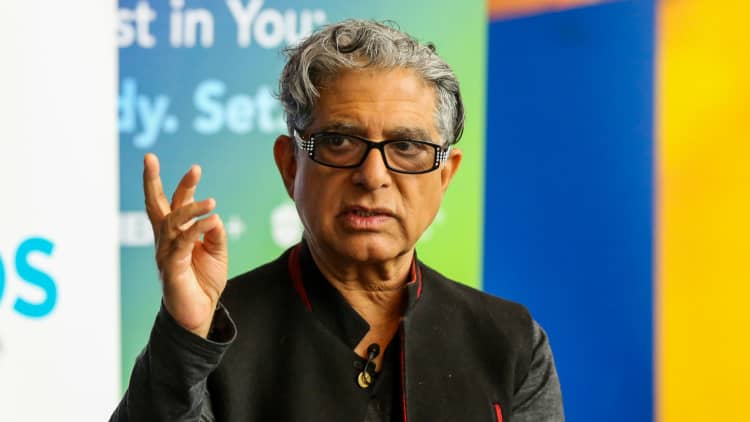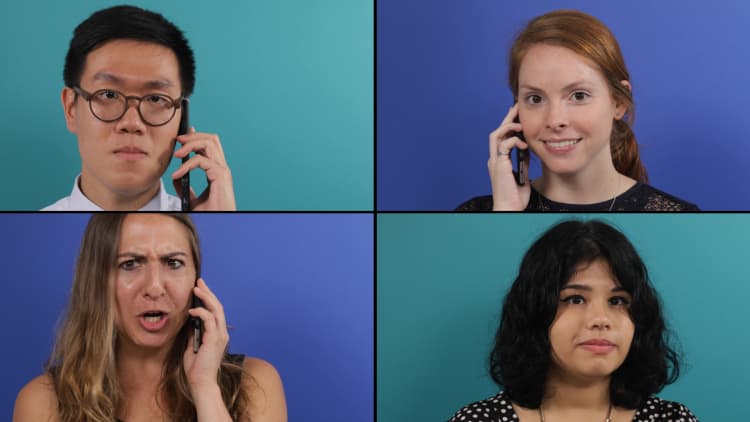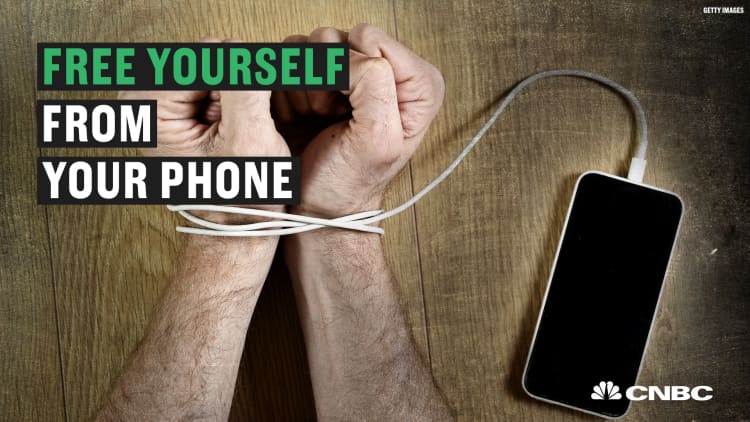Not getting a good night's rest is a surefire way to sabotage your productivity, mood and overall well-being. Yet 63 percent of Americans keep their phones close to bed, so it's the last thing they look at before they got to sleep and the first thing they check when they wake up, according to Gallup.
A new scientific study shows that simply leaving your smartphone outside of the bedroom at night can improve your happiness, mental well-being and quality of life in just a week's time.
"There is a deep resistance from people to put their phones away and this study shows how deeply ingrained technology is in our lives," the study's co-author Nicola Hughes tells CNBC Make It. "We wanted to look at what the consequence of no longer being connected and available to work all the time."

University of East London psychology senior lecturer Jolanta Burke and Hughes, a master's candidate at the time, delved into the relationship people have with their phones on a daily basis in their study, "Sleeping with the frenemy: How restricting 'bedroom use' of smartphones impacts happiness and wellbeing," published in the "Computers in Human Behavior" journal in March this year.
Hughes tells Make It that the experiment was based on her own experience: up until four years ago, she had a Blackberry cellphone which she mainly used for emails, texts and "well, phone calls." As everyone around her got iPhones and other advanced smartphones, she noticed they also became hooked to their phones.
"Now, you look down at your phone, you open Instagram, which then leads to an article and suddenly 40 minutes have gone by," Hughes says. "You're getting information that you didn't seek out and going down mental and emotional journeys that you did not choose or intend to go down."
In the study, Hughes and Burke split their 95 participants — a majority of them millennials — into two groups: a control group which could use their smartphones as usual and an experimental group which was not allowed to use their phone in their bedroom for one week.
Hughes says the initial sample size group was made of 200 people, but once she shared the requirements of the experiment, people dropped out. She noted this may have been a sign of how attached people can be to their phones.
The study concluded that those who didn't use their phones in their bedrooms showed a statistically significant increase happiness and overall quality of life.
To Hughes' surprise, the study also found that the week-long experiment made people less likely to be addicted to their phones.

"If you break that cycle, if you don't check the phone at night or morning, you actually are less likely to show addictive behaviors in other ways of your life as well," Hughes says.
The participants also reported improved personal relationships, quality of sleep, well-being and reduced anxiety. With their phones out of reach, they also had more time on their hands.
The researchers want to make it clear, though, that they aren't completely demonizing the use of your smartphones: "Since social connectedness and feeling like part of a community have been shown to correlate with positive affect and subjective well-being, it's evident that smartphones and social media platforms can bring about positive effects for users, if used in community building and enhancing ways," they wrote in the paper.
For those looking to try this experiment on their own, Hughes says to challenge yourself for a week to keep your phone out of your bedroom.
"Think about it: do you really need to check your email right now? Do you need to be on social media first thing in the morning?" Hughes says.
You can also take a few pointers from some of today's top leaders: billionaire media mogul Arianna Huffington takes a hot bath, literally tucks her phone into bed every night and reads a physical book. Like Huffington, Microsoft co-founder Bill Gates also dedicates an hour to reading before bed.
"Keep the bed a tech-free place. Read a book, meditate, talk to your partner," Hughes says. "You don't need to be constantly contacting people."
"This is impacting people's abilities to live happy lives," she adds. "It's vital to take this seriously and be conscious of how often you're using your phone."
Like this story? Like CNBC Make It on Facebook.
Don't miss:



